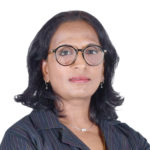What is an Occupation Permit?
Under the Investment Promotion Act 2006 and Immigration Act 1970, an Occupation Permit allows a non-citizen to live and work in Mauritius for a period of three years once s/he has met with the definition of ‘professional’, ‘investor’ or is self-employed and engaged in a professional activity registered with the Registrar of Businesses under the Business Registration Act 2002. It is in effect a combined work and residence permit which is granted to designated persons, under specific circumstances and is renewable.

An application for an Occupation Permit is lodged with the Passport & Immigration Office (PIO) through the Economic Development Board (EDB) which has now taken over the Board of Investment. A satisfactory completed application, with all supporting documents, is processed in five working days of its submission except for cases where additional information may be required. It is crucial for the applicant to be physically present at the time of the application at the EDB, hence the applicant must enter the country on a business visa at first and then proceed with the registration and submission with the EDB.
Eligibility
The Occupation Permit allows eligible foreign nationals to work and reside in the country under 3 specific categories namely:
1. Investor – a person, director, shareholder or body of persons in association, société, partnership or company with an annual turnover exceeding MUR 3 million [USD 84,000] must be generated by the business.
2. Professional – a person holding a contract of employment with a company, société or partnership and earning a basic salary exceeding MUR 60,000 [USD 1,700] a month. However, it is to be noted that for those operating within the Information and Communication Technology sector, the basic salary must exceed MUR 30,000 [USD 850].
3. Self-Employed – a person engaged in professional activities with an initial investment of USD 35,000 or its equivalent in freely convertible foreign currency and, where the income generated from the activity exceeds MUR 600,000 [USD 16,700] annually for the first two years and MUR 1.2 million [USD 33,333] as from the third year of activity.
Once an Occupation Permit is granted, its holder is not authorised to switch from one category to another as an Occupational Permit is non–transferable.
Registration and Application
The appropriate registration form should be filled and submitted to the EDB. Applicants falling in the category of investor or self-employed must provide details regarding their business projects, i.e. amount to be transferred to Mauritius, expected annual business turnover/income. For a professional the employer must submit a full contract of employment and applicant in this case will have to be accompanied by the HR Manager or its representative.
A prospective applicant would generally be required to submit, in any one category, a copy of his passport, copy of birth certificate (if not in English or French, an authorised translation is to be produced), four recent passport sized photographs together with the aforementioned prescribed application form.
How are the applications processed?
The EDB will forward an application to the PIO upon receipt, if satisfactory. The PIO will then process the application and notify the applicant accordingly. If the event of non-approval of an application for an OP, a formal letter stating this decision will be provided to the applicant and the fee paid to the Government of Mauritius will be refunded in full. It should also be noted that applicants are required to conduct compulsory sets of prescribed medical tests and submit all the results to any private local doctor.
Dependents
Dependents of holders of Occupation Permits are equally eligible to apply for a permit. Dependents are defined as ‘spouse’ (including common law partner of the opposite sex) and children, including step children or lawfully adopted children, less than 24 years of age. The dependent should ensure that he/she has a valid tourist visa. If the visa is not valid, the application will not be processed. In case the dependents wish to work in Mauritius, they need to apply either for a work permit or an Occupation Permit, as the case may be.
Conclusion
There is no doubt that in introducing the Occupation Permit scheme, the Government of Mauritius was promoting the development of certain sectors of the economy by encouraging highly skilled technicians to practise in the jurisdiction. The National Budget 2018-2019 which was tabled before the Mauritian Parliament on 14 June 2018 by the Prime Minister, in his capacity as Minister of Finance, is taking this endeavour further as it seeks to encourage the development of sectors as artificial intelligence, biotechnology and financial technology, which in themselves require specialists in the field to run smoothly, meet the challenges faced by these industries.












